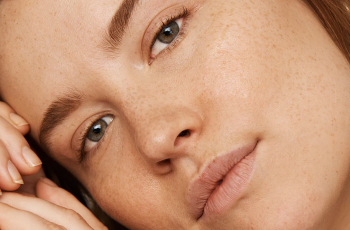
Plus, the best products to use in the evening for a more radiant complexion in the a.m.
From skin cycling to slugging, there’s no shortage of viral methods to achieve a glowing complexion. But in reality, all you need is a powerful nighttime skincare routine and consistency.
“A nighttime routine focuses on repair and recovery, as the skin regenerates while you sleep,” explains Marisa Garshick, M.D., a leading board-certified dermatologist at Manhattan Dermatology and Cosmetic Surgery in NYC.
It’s a great opportunity to cleanse away the day and use certain targeted treatments, acne medications, or active ingredients that often aren’t suitable for daytime use (looking at you, retinol and retinoids!),
says Caroline N. Opene, M.D., a board-certified dermatologist and Medical Director of UCLA Health Skin of Color Clinic.
While there are a few “rules” to follow, so to speak, “skincare is highly personal and there are few one-size-fits-all recommendations,” says Dr. Opene. Your evening skincare routine is entirely customizable to your preferences and concerns:
You can keep things on the simple side and spend time on only the necessities, embrace a few extra steps with toners and serums, or even turn your routine into a relaxing at-home facial.
Regardless of what you choose, it’s a good idea to follow a set nighttime skincare routine to maintain clean skin while maximizing skin renewal. Keep reading to find our experts’ top tips for creating one that works for you.
Nighttime skincare routine steps
Following the correct order to apply skincare products is important: It ensures optimal product absorption for each step and increases the efficacy of whatever ingredients are in those products.
Thankfully, there’s a pretty simple way to think about how you should order your products:
“In general, I have my patients apply their products from thinnest (think serum/toner) to thickest (creams),” explains Dr. Opene. Below, find the proper steps for applying your nighttime skincare routine according to the pros.
Cleanser
One of the most beneficial things you can do for your skin in the evening is to wash your face with the best cleanser for your skin type.
This step “removes makeup, dirt, and oil to prepare your skin for treatments,” says Dr. Garshick.
“For those who wear a lot of makeup, consider a double cleanse using an oil-based cleanser” before using another cleanser of your choice, she adds.
Dr. Garshick explains that gel or foaming cleansers are great options for those with oily skin while those with dry skin should opt for a hydrating or cream cleanser.
Toner
Toners aren’t the most integral step in your skincare routine, but they can have their benefits (especially if you need some extra hydration or like to use your active ingredients during this step).
For those who opt for using a toner, “it is best applied after cleansing,” Dr. Garshick says, as toners are usually the lightest in texture compared to the rest of the products in your lineup.
Serum
Next, you can apply targeted serums for concerns like acne, anti-aging, or dryness. “For someone using multiple serums, it is best to use thinnest to thickest,” Dr. Garshick explains.
If you are using serums with ingredients like retinol or exfoliating acids, be sure to avoid layering too many active ingredients in one routine as this can cause skin sensitivity and irritation.
Treatment
If you use any treatments in the form of retinoids or other prescription topicals, this is when to apply those. You can either use these in place of your serum step or after a calming or hydrating serum (note: not after an exfoliating serum), Dr. Garshick explains.
Retinol or retinoids are common treatments, and using either of these at least three times per week can help “accelerate skin turnover, manage acne breakouts, and reduce hyperpigmentation,” Dr. Opene explains. One to two nights per week (when not using a retinoid or retinol),
Dr. Opene says that you could add a chemical exfoliant product (such as a serum or toner containing lactic acid, mandelic acid, or glycolic acid) to improve hyperpigmentation and skin texture.
However, there is an exception to this step. “If your retinol or other active ingredient is irritating to your skin,” Dr. Opene suggests applying moisturizer first “to provide a barrier,” and shifting this step to the end of your routine.
Eye cream
“Thin, delicate eye skin benefits from targeted care,” says Dr. Garshick, who adds that now is the time to address specific concerns like puffiness or dark circles.
She suggests looking for eye creams containing hyaluronic acid for those concerned with overall hydration; peptides or retinol for fine lines and wrinkles; or brightening ingredients like vitamin C or niacinamide for dark circles.
Apply these products gently with your ring finger, Dr. Garhsick explains, to ensure you’re not using too much pressure.
Moisturizer
“Lastly, [apply] a moisturizer to replenish the skin’s barrier function” and lock in hydration and moisture, Dr. Opene says.
It’s a good idea to choose a formula based on your skin type, Dr. Garshick adds, noting that a lightweight or gel moisturizer is best for those with oily or acne-prone skin while a thicker, richer cream is best suited to those with dry skin.
What is a basic skincare routine?
Sometimes less is more when it comes to skincare. If you’d like to take a more minimal approach to your evening routine, you truly only need a cleanser “to remove build-up from throughout the day” and a moisturizer “to help nourish the skin,” says Dr. Garshick.
If you have specific skin concerns, Dr. Garhsick says it’s also a good idea to incorporate a product (typically a serum or cream) with an active ingredient tailored to that concern.

